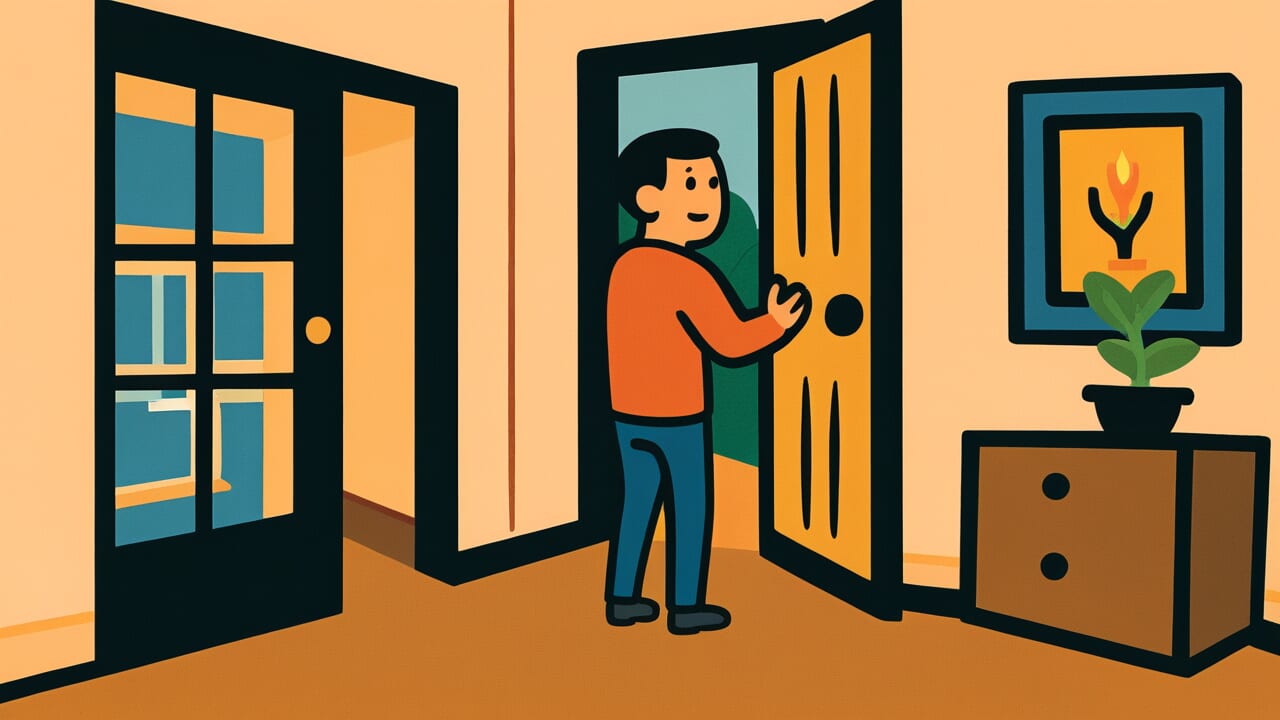How to Read “There is no place better than one’s own home”
Waga ie ni masaru tokoro nashi
Meaning of “There is no place better than one’s own home”
This proverb expresses that your own home is the most comfortable and valuable place.
No matter how luxurious a mansion or beautiful a scenic location you visit, the house where you live daily is ultimately the most relaxing.
This saying captures an honest human emotion.
People use this expression when describing the relief of returning home from a trip or business trip.
It also applies when you recognize the goodness of your own home even after seeing someone else’s impressive house.
The reason for using this expression is to convey an important truth. Real comfort comes not from material luxury or size, but from spiritual values.
These include familiar spaces and memories with family.
Even today, you might feel envious seeing other people’s wonderful lives on social media.
Yet everyone has experienced that their own living space actually feels most comfortable.
Origin and Etymology
The exact source of this proverb is unclear. However, it has been used since ancient times as an expression of the unique Japanese sense toward dwelling places.
Looking at the word structure, it combines “waga ie” (one’s own home), an extremely personal space, with “masaru tokoro nashi” (no place better), an absolute evaluation.
This composition itself tells the story of Japanese people’s deep attachment to home.
In traditional Japanese housing culture, a home was not just a building.
It was viewed as a special place where family history and memories accumulated.
Everything becomes part of the family story. This includes the scent of tatami mats, scratches on pillars, and trees in the garden.
This sensibility developed within a culture where families continued living in the same house across generations.
Also, in Japan since ancient times, the concept of “ie” (house) has been used to refer not only to the building itself but also to the entire family or clan.
This dual meaning may give depth to this proverb.
No matter how magnificent a mansion you visit, the place where your own family lives is ultimately the best.
The saying became established as an expression of this essential human emotion.
Usage Examples
- After finishing a week-long business trip, I truly felt that there is no place better than one’s own home
- My friend’s new apartment was lovely, but I felt that there is no place better than one’s own home
Universal Wisdom
Behind this proverb’s long transmission lies a deep insight about fundamental human needs.
It addresses the desire to have a place where you feel safe. This wish is common to all people.
Humans are social creatures who constantly live in comparison with others.
A bigger house, a more beautiful garden, a more convenient location. The outside world always contains “something better” that shakes our hearts.
However, this proverb teaches a different truth. Real value cannot be measured through comparison.
You feel your own home is the best because of the time and memories accumulated there.
The room where you watched your children grow, the dining table where your family gathered, the nights you spent quietly alone.
These experiences cannot be bought, no matter how magnificent the building.
Humans are creatures attracted to new and unusual things, yet they feel deep peace in familiar things.
Our ancestors understood that happiness is determined not by external conditions but by the sense of satisfaction within yourself.
They recognized the human tendency to seek “somewhere other than here” no matter where you are.
Yet this proverb quietly speaks about the importance of recognizing the value of where you are now.
When AI Hears This
Behavioral economics experiments confirm an interesting phenomenon. When people holding a mug are asked “how much would you sell it for,” they answer an average of $7.
But when people not holding one are asked “how much would you pay,” they answer an average of $3.
This is called the endowment effect. The same mug’s value jumps more than double the moment you own it.
Home is one of the places where this endowment effect works most strongly.
This is because a home is not just an object but something you’ve invested massive amounts of time and money in.
In behavioral economics, people use what they’ve invested as a reference point. They extremely dislike losses from that point.
In other words, admitting “my home is actually nothing special” means admitting your investment was wasted. This feels like a psychological loss.
What’s more interesting is that this cognitive bias actually has rational aspects.
Moving involves enormous costs. Not just physical expenses, but immeasurable invisible costs.
These include adapting to a new environment, rebuilding relationships, and changing commute routes.
When the brain automatically values your home highly, it makes the decision not to move easily.
This avoids risks from frequent relocation. It may be a defense mechanism acquired through evolution.
Lessons for Today
This proverb teaches modern people a truth. Happiness does not exist in comparison.
When you see other people’s wonderful lives on social media or look at ideal homes in magazines, your own life may seem dull.
However, real richness lies not in external conditions but in the peace of mind you feel in that place.
There’s something you can practice starting today. Consciously find the good points of your own home.
The window where morning sunlight streams in, your favorite chair, the living room where family laughter echoes.
Try looking again at values you’ve overlooked because they seemed too ordinary.
Also, this proverb teaches the wisdom of living with “knowing what is enough.”
Ambition to seek better things is important. But if you cannot recognize the value of what you have now, you won’t be satisfied anywhere.
Your home is your life itself. It may not be perfect, but it contains your unique story.
When you notice that value, your heart becomes truly rich.



Comments